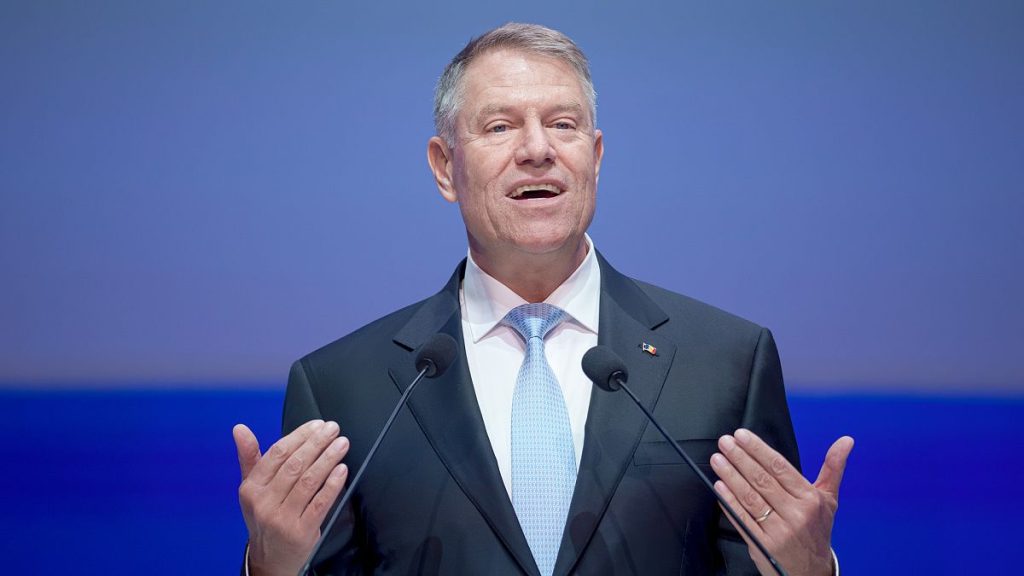The Romanian Presidential Election Crisis: A Deep Dive into Foreign Interference and Constitutional Implications
The Romanian political landscape was thrown into turmoil following the unexpected victory of far-right nationalist candidate Călin Georgescu in the presidential elections. This outcome, however, was short-lived, as the Romanian Constitutional Court annulled the election results due to credible evidence of foreign interference. This unprecedented decision sent shockwaves through Romanian society and raised concerns about the integrity of the democratic process. President Klaus Iohannis, whose term was set to conclude, addressed the nation, assuring citizens, the European Union, and NATO of Romania’s continued stability amidst the crisis.
The annulment decision, according to President Iohannis, stemmed from serious concerns raised by intelligence reports regarding potential foreign meddling in the electoral process. These reports, which Iohannis described as "grave," pointed to "massive illegal election support" for Georgescu, despite his claims of zero campaign spending. This financial support, according to intelligence agencies, originated from a foreign country, raising significant national security concerns. Furthermore, the intelligence reports revealed a sophisticated social media campaign, primarily on TikTok, which propelled Georgescu’s popularity in the weeks leading up to the election.
The intelligence community’s findings were corroborated by declassified information, revealing that Georgescu’s victory was "not a natural outcome." The information pointed to a coordinated social media campaign orchestrated by a "state actor" to artificially boost Georgescu’s candidacy. A pre-existing sleeper network on TikTok was suddenly activated two weeks before the election, employing tactics consistent with state-sponsored information operations. This network utilized the messaging platform Telegram for recruitment and coordination, further solidifying suspicions of foreign involvement. Financial analysis uncovered approximately €1 million spent by an individual supporting Georgescu, with up to €950 paid for a single repost on TikTok, contradicting Georgescu’s claims of relying solely on volunteers.
Georgescu, who had previously garnered attention for his fringe beliefs and support of Romanian World War II Nazi collaborators, maintained that his campaign was entirely volunteer-driven and lacked any official budget. However, the intelligence reports and declassified information painted a different picture, revealing a well-funded and coordinated campaign with suspected foreign backing. This revelation raised serious questions about the legitimacy of the election results and the extent of external influence on the democratic process.
President Iohannis, while acknowledging the gravity of the situation, emphasized Romania’s commitment to democratic values and its unwavering stability. He assured the nation that he would remain in office until a new president is lawfully elected, as stipulated by the Romanian constitution. This interim period will allow for the organization of new elections and the restoration of public trust in the electoral process. Iohannis reiterated his commitment to a "democratic, free, modern, safe, European Romania," emphasizing the country’s resilience in the face of this challenge.
In his address, President Iohannis underscored Romania’s stability and reliability to its international partners. He reassured the European Union and NATO that Romania remains a steadfast ally and a secure partner. This message of stability aimed to mitigate potential concerns about the political situation and reaffirm Romania’s commitment to its international obligations. The responsibility of setting new dates for the presidential elections falls upon the incoming government, which is expected to be formed by a coalition of pro-EU parties following the recent parliamentary elections. This new government will face the crucial task of restoring confidence in the electoral process and ensuring the integrity of future elections. The situation in Romania serves as a stark reminder of the increasing vulnerability of democratic processes to foreign interference, particularly through sophisticated social media campaigns. It also underscores the importance of independent institutions, such as the Constitutional Court, in safeguarding the integrity of elections and upholding the rule of law.














